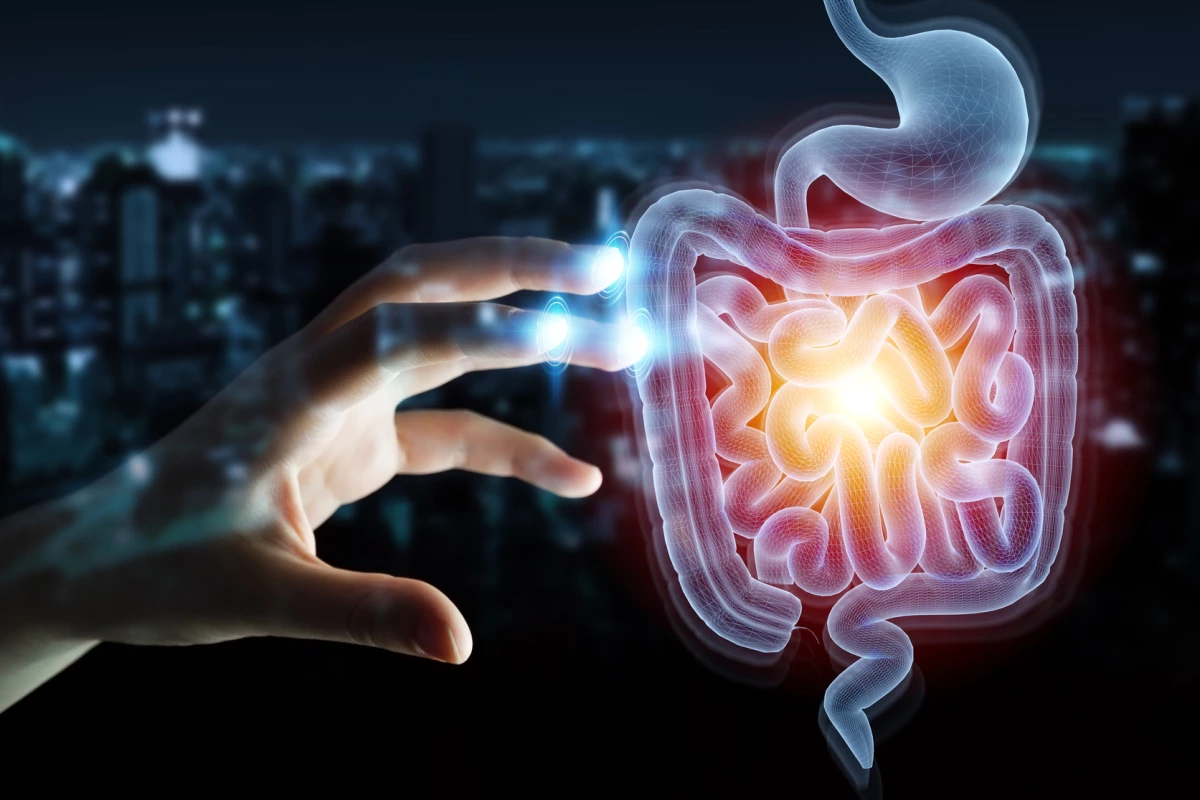Robust new research is suggesting a high-fat diet and antibiotic use work together synergistically to promote the type of gut microbiome imbalance that can lead to bowel inflammation. The study sheds light on the causal mechanisms by which environmental factors can trigger the conditions necessary for inflammatory bowel disease (IBD).
It is generally suspected that a combination of genetic and environmental factors contribute to patients suffering from IBD. Scientists are increasingly understanding the role the gut microbiome plays in generating both local intestinal, and systemic, inflammation.
To better home in on the mechanisms that could be underpinning this relationship, the new research first looked at a cohort of subjects with a specific form of irritable bowel syndrome thought to serve as a precursor to IBD.
Using a fecal biomarker to measure intestinal inflammation, the researchers could ascertain which subjects displayed the greatest likelihood of currently being in a pre-IBD state. The researchers then discovered those pre-IBD subjects were more likely to consume a high-fat diet and have a recent history of antibiotic use.
Recent antibiotic use, as defined by at least one course of antibiotics over the past year, made a subject 3.9 times more likely to develop a pre-IBD state. A high-fat diet was associated with 2.8 times higher likelihood of developing pre-IBD. But combined, these two factors made a subject 8.6 times more likely to develop pre-IBD.
"Our study found that a history of antibiotics in individuals consuming a high-fat diet was associated with the greatest risk for pre-IBD," says lead author Andreas Bäumler. "Until now, we didn't appreciate how different environmental risk factors can synergize to drive the disease."
The study then set out to investigate how these two environmental factors could be working together to trigger intestinal inflammation. The effect of high-fat diets and antibiotics on intestinal cells were investigated using mouse models.
“Notably, high-fat diet and streptomycin treatment produced a long-term reduction in mitochondrial bioenergetics in the colonic epithelium of mice that was not observed with exposure to either environmental factor individually,” the researchers write in the study. “A likely reason for this cooperative effect is that high-fat diet and streptomycin treatment both reduce mitochondrial activity but through different mechanisms.”
This unusual synergistic effect results in a reduction of the cell’s ability to burn oxygen, ultimately increasing overall oxygen levels in the gut. The downstream effect of this subsequently promotes an imbalance in the gut microbiome by creating an environment more conducive to the proliferation of harmful bacteria that thrive in these oxygenated environments.
Interestingly, the observed mechanism fits with an idea proposed back in 2013 called the 'oxygen hypothesis.' This hypothesis suggests the gut microbiome imbalances seen in IBD could be triggered by increasing levels of oxygen in the intestine.
To test this older hypothesis, the new study gave the mice with signs of pre-IBD a drug called 5-aminosalicylate (mesalazine). This drug activates mitochondrial activity, and the goal was to restore those intestinal oxygen levels back to normal. Impressively, the treated animals not only demonstrated a return to normal healthy gut microbial populations, but also displayed a significant drop in symptoms associated with pre-IBD.
"The best approach to a healthy gut is to get rid of the preferred sustenance of harmful microbes," explains Jee-Yon Lee, another author on the new study.
The compelling new study certainly points to a number of novel pathways for future research into IBD treatments, but it also delivers powerful new insights into the way environmental factors can cause intestinal inflammation by triggering bacterial imbalances in the microbiome. In the short-term, Lee suggests those at high risk of developing IBD should be cautious with their dietary habits while avoiding unnecessary antibiotic use.
"Our study emphasized the importance of avoiding high fat food and abuse of antibiotics to avoid gut inflammation,” says Lee.
The new study was published in the journal Cell Host & Microbe.
Source: UC Davis




